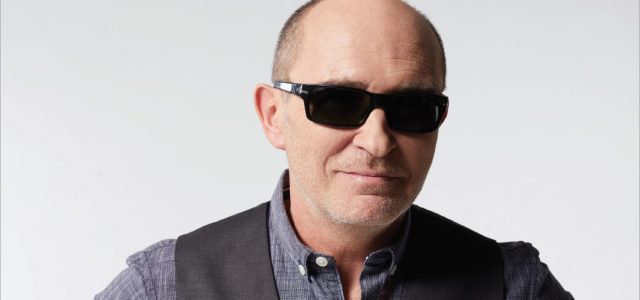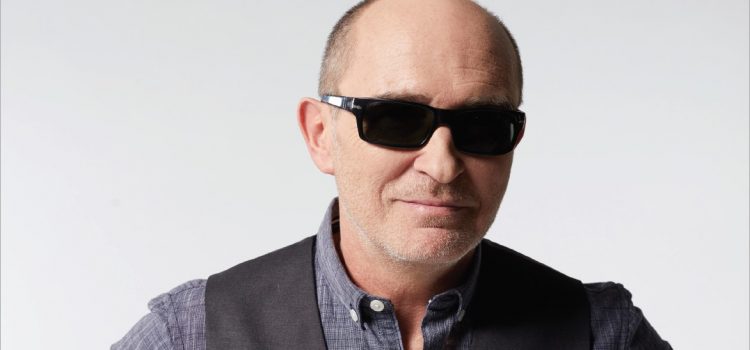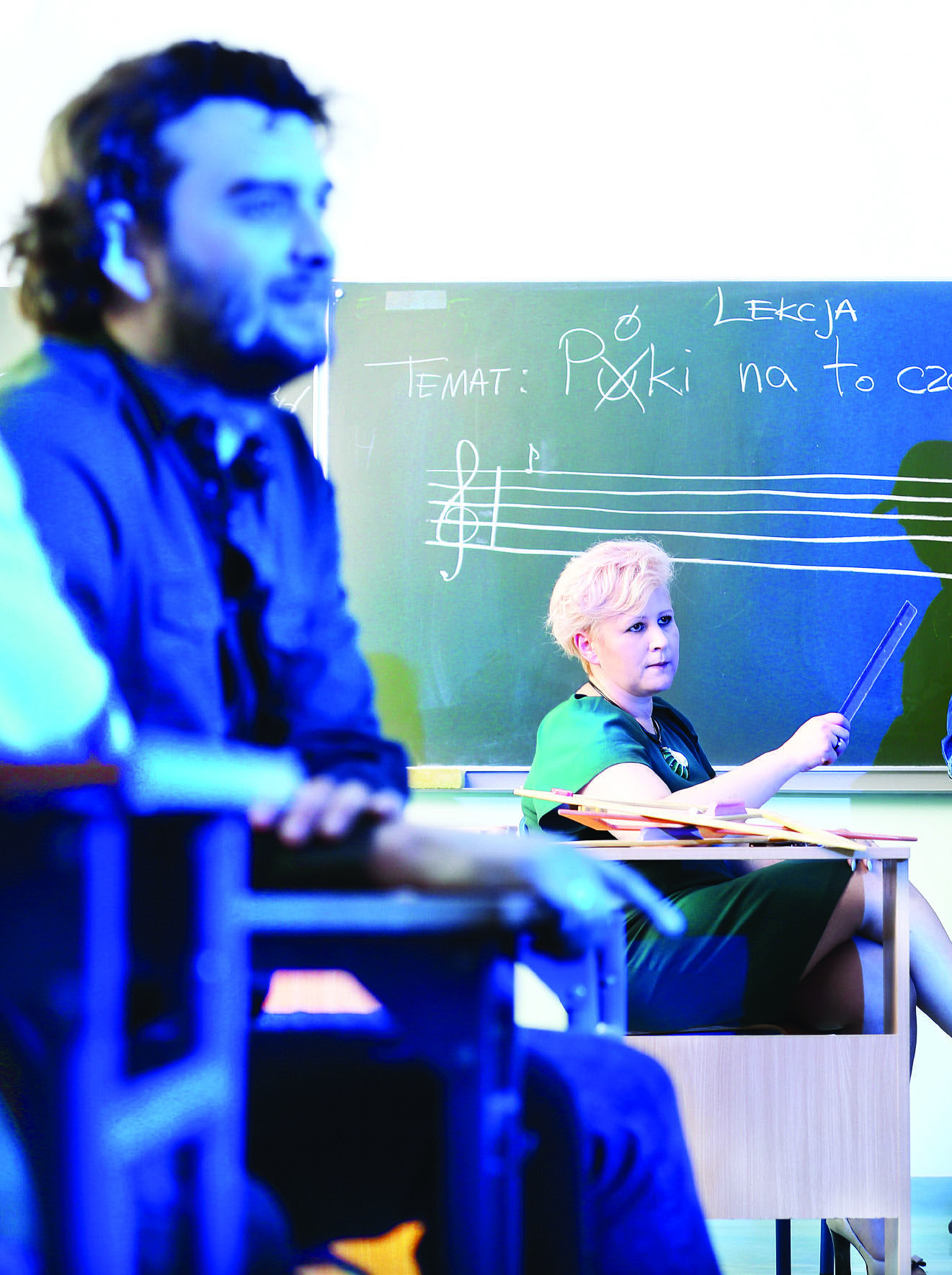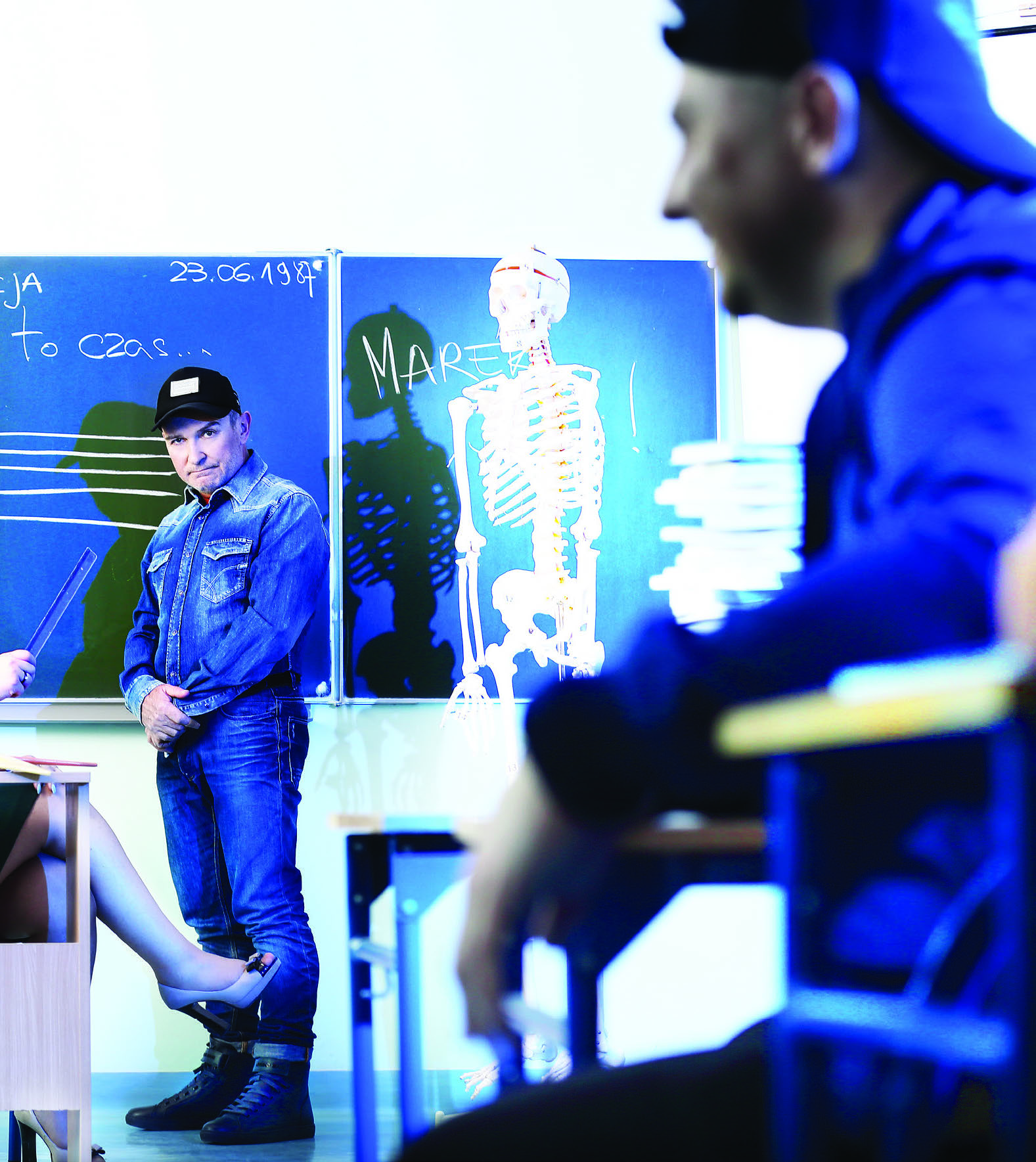

“Crooked Nose” that is, the honest confession of the leader
Personality 13 June 2019 Krzysztof Sadecki

Playing the guitar, which originally was intended only as a way to romance girls, became my passion, and later the love of my life. The beginning was not easy. I didn’t have my own instrument, so I borrowed one from my neighbors in Mokotow. Three days from one, three from the other, and another three from a third.
Andrew, you have played thousands of concerts around the world, achieved great success, but how did it start? How did it happen that a boy with a mandolin started playing the guitar?
The mandolin was a short two-year phase in my adole-scent life. Fact is that it was the start of it all. Who knows what my fate would have been if my father didn’t take me to audition for the school band? Back then it seemed like a low blow, today I am proud of it and very grateful to my father for pushing me in the right direction.
Playing the guitar, which originally was intended only as a way to romance girls, became my passion, and later the love of my life. The beginning was not easy. I didn’t have my own instrument, so I barrowed one from my neighbors in Mokotow. Three days from one, three from the other, and another three from a third. Thanks to this I always had an instrument to practice with. At the age of 14 years old I decided that I must make money to buy my first instrument. I went to my mother’s hometown over vacation – Zbaszyn, and there I worked for my aunt Kate at the Bar Zagloba (beer hall) as a bartender. The-se days they would probably shut her down for hiring an underage kid as a bartender, but back then nobody cared. With the money I earned there I bought my first Defil guitar. Horrible, difficult to tune, but my own. The rest of the money I spent on a pair of black jeans by Odra. Equipped in such a way, I started traveling to Warsaw’s old town district to observe the local folk and country bands. I would like to remind you this was the end of the ’70s and there was no internet, YouTube, or any other way of finding out what the cords for playing “Stairway to Heaven” or Pink Floyd’s “Wish you were here.”
I learned by ear, screwing up cassette tapes on my Tonetk player until the cassettes were no longer usable. Then due to my older street performer friends persuading me, I started my own band. A street trio playing of course in the Warsaw Old Town. That is how it all started.
Not long ago De Mono had its 30th anniversary, and you yourself have graced the stage for over 35 – that is an incredible amount of work. Is there any secret to your success?
I think it’s a result of my passion and love for music. Confucius once said that if you do what you love, then you aren’t working a day in your life. I completely agree with this. Music fulfills me and gives me pleasure. Of course, nothing just happens. You must learn new thin-gs and practice while expanding your horizons. But it still gives me great satisfaction.

What is the difference between the De Mono whose original album is still so popular from the one we see here to-day?
Putting it lightly, I lost a bit of hair, but still, I aspire to be a great and noticeable band. We have our sound which we slightly modify to fit in to the modern era. It is still honest to goodness guitar playing with a good dose of rhythmic keyboard instruments. A bit of flavor added by the sax and my voice. We try to write songs with a good melody and words that have a story rather than about the 40 thieves (laughing). If you’re talking about the band members, it has been ever-changing. Of the original members, it’s me and our base player Peter Kubiaczyk.
The rest of our buddies left in sequence, star-ting with Jack Perkowski, who joined the band T. Love, then in 1996 Mark Koscikiewicz who similarly to Robert Chojnacki decided to start a solo career. The last to go was Derek Kru-picz who decided on a quiet life in the Bieszczady. Every time the vacancy needed to be filled by new musicians, and so finally for the last 15 years, we have a permanent group. We are a band of friends, a collective of individuals sharing the same passion – music. Looking back on our whole story, I concluded that I have the best team I could ever ask for. Let me introduce the band: On the percussion is Marcin Korbacz, on the keyboards Paul Dampc, on guitars Zdzislaw Ziolo and Tom Banas, Paul Pelczynski on the sax, on the base Peter Kubiaczyk, and then my humble self. This is the lineup that recorded many wonder-ful albums, among others: “No stress” which achieved gold status, and the song “While the-re’s still time” became the most popular hit on the radio, for which we also won an award. Today we don’t have to compete with anyone or perform at any contests to exist. We work quietly, convinced that one of our new singles will come to the attention of our listeners.

Your hits have been redone in acoustic and symphonic format, ticket sales sell out quickly when you’re on tour, and ba-sed on your artistic work it is safe to say that you have achieved it all. Some would say it’s time to get some rest. What are your plans for the near future?
I often joke that I still have a long way ahead of me. It’s only been 35 years on stage, so you could say it’s just the beginning. But in all seriousness, I still have a lot of new ideas, so it’s not yet time to retire.
De Mono is preparing a new album premier, which may be occurring in the fall. During the summer we would like to release one or two singles from the album. After this album re-lease, we would like to get back to the studio and work on newly prepared material, which was written by Agnes Osiecka. Last year we were invited to the New Theater in Poznan to appear during the final concert of Agnieszka Okularnica’s festival. We prepared a performance comprised of a few dozen songs which have had a completely new and unprecedented sound, combined with a new visual and special effects approach which allowed songs from the bygone years to take on a new life. The became very appropriate for this era, which proves the sheer genius of the author. Many bands have done this before, so it was a major challenge to do this right so that we are not just another repeat.
We didn’t take the easy way out, quite the opposite. We wanted this concert to incite emotions and discussions afterwards. To ensure it was unique and sometimes controversial, that it will be remembered. We succeeded. The concert turned out great, the public applauded for nearly 10 minutes and calling for an encore. We got great ratings, which gained the attention of concert organizers. Starting in January we went on tour with that exact material. Sorry about getting so excited by this, but this is our youngest child. This aside, we play acoustic concerts as well as electric. We are also gearing up for an international tour so that we can once more get to see the Polonia for which I love performing. They are a fantastic public, grateful and happy every time. I also play solo concerts with various bands, sometimes with the best orchestras and big-bands. Together with my best friend and manager Mathew Mizgalski, we are planning a mini-tour for my 35th anniversary on stage. It’s hard to schedule, but I am hopeful. So, as you see, there isn’t much going on in my artistic career (laugh).

Andrew, how did it happen that you decided to give us an interview for Rzeka with such a distinct title as “Crooked Nose”?
This is sheer coincidence like everything in my life. Thanks to my wife Ania, I was contacted by Jacob Frolow, an intelligent young man who proposed to interview Rzeka, which would be the basis for a book. I thought about it and figured it’s an interesting idea and my only solution, because if I were to write something myself, then it would take me two years to write an introduction. We sat in the evenings in the attic, far from the commotion at home, and talked for hours. That is to say, Jacob asked the questions, and I talked and talked… And so, after a few months, this work came into being. Who came up with the title, I honestly don’t remember. Jacob says it was I; I say it was him. Anyways, it doesn’t matter. The book was published; people are happy to read my stories, the youth thank me for bringing those days closer for them through the eyes of an artist. Generally, everyone is happy.
The book bears a secondary title – Confessions of the Lead Singer of De Mono – is this an attempt at making things right for the past?
The book reflects my short yet colorful life. There is no fantasy in it or anything made up. I wanted it to be real, without any prettifying or changing things for the sake of the book. Of course, it is a description of how things went as I remember them, through my eyes, perhaps not comfortable for every reader, but I believe in telling things how they are. I don’t need to account for my past, because I don’t have much to regret. I am happy with my life. I tried to live honestly, avoided harming others and often help if I could. I can still look in the mirror and see a good man (laughter).
In the book we find many interesting bits, such as; avoiding military service, faking a suicide attempts, and playing music in the Old Town. Your biography is one giant anecdote. The reader gets the impression that they are sitting across the table from you and listening. Was the book as enjoyable to work on and quick to write as it is to read?
Yes, working on it was very enjoyable. Jacob is a great guy, and well prepared for his job. As I mentioned, he asked the questions, I simply answered. We wanted to make sure this wasn’t a very pompous book, some grand history of Andrzej Krzywy, but loose talk between friends. I think we succeeded in this.
You are an individual who is always smiling and very playful; how do you do it?
I am very objective about myself and can laugh at my flaws. I can also be a little mean, but this is apparently a trait of intelligent people. I see myself as a normal guy, without an overinflated ego or expecting love just because I sang a few songs that people like. Sure, it makes me happy when I hear my songs helped someone or that the songs remind them of important moments in life, but I am also aware of the fact that not everyone likes me. Believe me; I won’t kill myself over this. It’s normal. No one has been born yet who can please everyone. I know my worth, but I am also aware of my flaws and detractions. I make mistakes like everybody else, and I learn from those mistakes. I have an awesome and slightly deranged family, a flock of animals and a few good friends. My health is good thus far, knock on wood. So, what is there to worry about? I am very happy with my life (laughing). Damnit, I hope I don’t jinx it!
What would you say to young musicians who like you once did, dream of success? Would you have changed anything that you did during your rise to the top?
I would start by telling them that first, you have to have a plan and follow it. Have a goal and go for it. Practice, work and don’t fear learning new things. Humbly accept fate and failures. Intelligent people gain more from that than from success. I would of course add a bit of luck, as without luck it’s a lot harder. There is no recipe for success, just like there is no guaranteed way to make a hit. You got to keep trying, surprising, and try to be original. I will conclude now because I don’t want to seem like a know-it-all.
Andrew, what would you like us to wish you for the next 35 years?
I don’t feel old, but more and more I value my health. So, wish me health. The rest of it I will work to-wards myself.







